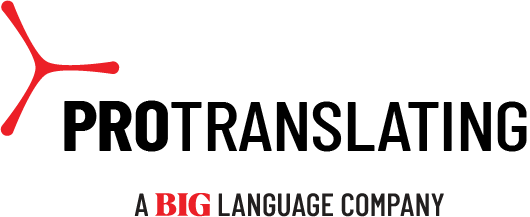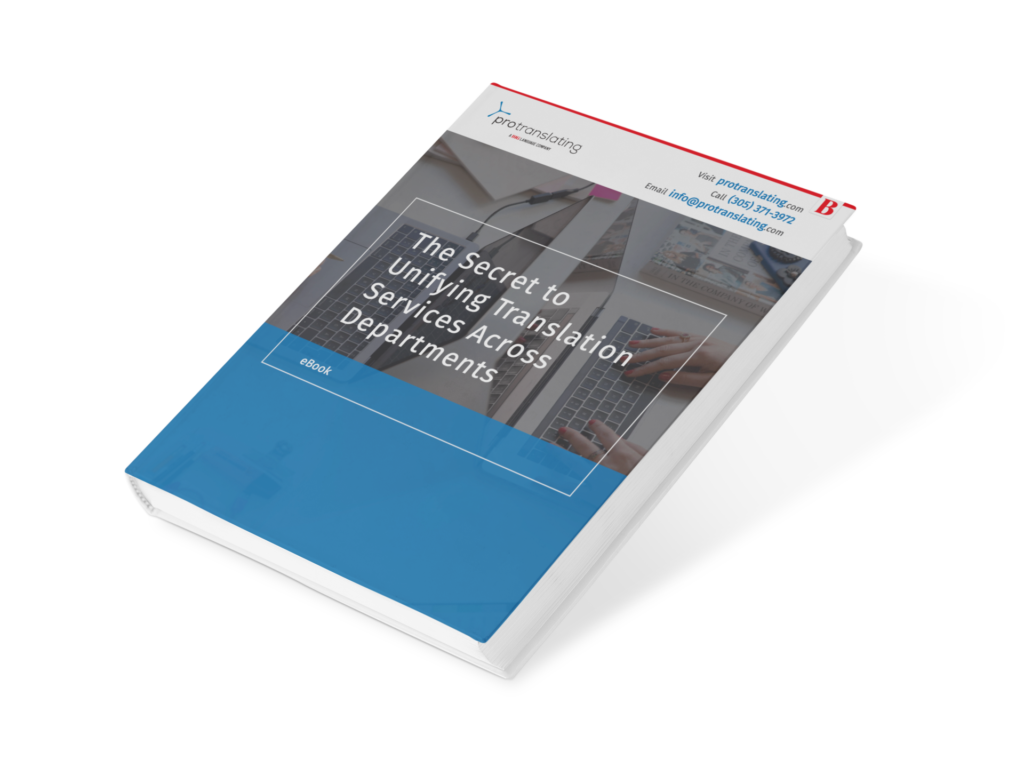Expert translation services are essential and largely required, in highly regulated industries such as law, financial services, healthcare, insurance, and manufacturing. Non- and partially regulated industries operate in a less-mandated environment but nevertheless also necessitate accurate, timely, and culturally sensitive translation both in the U.S. and abroad.

Here’s a look at some of these industries: meetings and conferences, consumer products and retail, marketing, and public relations, travel and tourism, entertainment, market research, and education.
Consumer Goods and Retail
Consumer products and retail companies were among the first to recognize the potential of translation services and drive growth. Among the leaders: Coca-Cola, KFC, Samsung, Domino’s, and Nintendo.
At times, the path has been difficult.
- In Germany, Puff offered its tissues under that brand name, even though “puff” is German slang for “brothel.”
- Clairol launched a curling iron in Germany called “Mist Stick”; “mist” is German slang for “manure.”
Clearly, cultural sensitivity must resonate with consumers and present both the product and its name in impactful, memorable, and uniquely engaging ways. German-based confectioner Haribo crafted the jingle for its Gummy Bears candy into languages spoken in target markets. The German version (“Haribo makes children happy, and grownups, too”) in English is “Kids and grownups love it so, the happy world of Haribo,” and in Spanish is “Experience a magical taste – come to the world of Haribo.”
Marketing and Public Relations
Brand names and taglines are only the tips of the iceberg as marketing materials also include TV and radio commercials, social media campaigns, blogs, company white papers, and product brochures. A mistranslation of instructions in a product manual could mean disaster for consumers, or simply mere annoyance and frustration.
Reportedly, China-based manufacturer Jiangmen Kangbaishi Electrical Appliances Co., Ltd. makes abundant translation glitches in product manuals and recipes for its KBS Pro breadmaker machine — even in the names of settings on the machine itself. Some consumers complain of spelling mistakes as well as confusion about instructions for using a two-sided spoon (“big spoon” and “little spoon”) that comes with the product.
Press releases, moreover, don’t just appear on a company’s website. They also are republished by other websites without correction, exacerbating the error. Think of the possible stock market impact if a publicly-traded company made a major mistake in reporting its financial performance.
Entertainment
Industry needs, which range from small businesses and individuals creating short Youtube videos to large studios and production houses generating first-run movies and TV series, are huge … and growing. Youtube estimates that more than two-thirds of a creator’s audience watch time comes from outside their home area.
Among streaming movie and TV services, Disney+ and Netflix offer non-English subtitles and dubbing for many of their original titles. In addition, Disney+ provides the choice of audio track or titles in the language of every country it operates, ranging from Spanish and French to Norwegian and Dutch. In contrast, translations of Hulu originals are limited to Spanish subtitles.
Major American film studios like Warner Brothers and Dreamworks Animation translate many of their titles for theatrical release. One effort: Dreamworks subtitled ‘Kung Fu Panda 3’ in both Simplified and Traditional Chinese for release in China, also reanimating the whole movie to match the characters’ mouth pronunciation and body language.

Market Research
Geography is a key segment of market research, which is essential for customer feedback about existing products, usability testing for new products, and information about what customers are reading and viewing. Communication needs to be clear between the business and survey participants to obtain accurate data and actionable insights.
For example, communicating with a French-speaking respondent in Quebec is vastly different from a participant in Paris. Survey content needs to be localized to your target market, otherwise, you run the risk of collecting invalid data and erroneous insights.
Meetings and Conferences
Many meetings and industry conferences headed online during the pandemic, and video conferencing services soared. Now, many event planners are looking to move to hybrid conferences.
One silver lining: conferences and meetings are becoming more accessible to multilingual audiences. Considering travel expenses, classic interpretation services for meetings and conferences could be costly because all participants needed to be in the same place at the same time.
Remote interpretation used to be more difficult due to technical limitations. But now, it’s much easier to perform remote interpretation services both on the phone and over the web. For the physical aspects of events, the industry requires on-site interpreters, technicians, planners, and coordinators.
Education
Translation goals in this partially regulated industry focus on comprehension and can include straightforward translation, as well as things such as voice-over casting, recording/mixing, and desktop publishing for e-learning materials.
Federal requirements about language translation services date to the Civil Rights Act of 1964. Title VI of the Act requires public schools to take affirmative steps to ensure limited English proficient (LEP) students can “meaningfully participate in educational programs and services,” as well as to “communicate information to LEP parents in a language they can understand.”
Schools must provide translation or interpretation to parents from “appropriate and competent individuals” about matters that include report cards, student discipline, language assistance programs, gifted and talented programs, and much more. Schools are addressing these issues through translated print materials, interpretation services for parents, and multilingual websites.
Travel and Tourism
Speedy translation is particularly critical for travel and tourism companies. It affects sales, customer satisfaction, logistics, financial and scheduling considerations, and reputation. In response to Title VI and subsequent guidance, the federal Transportation Security Agency (TSA) created an action plan in 2015. It was designed to make sure the agency communicates effectively with people with limited English proficiency (LEP) by providing “quality language assistance” services at U.S. airports in a timely way.
A supplementary action plan — to support multiple actions, including an update to the IVR phone system at the TSA Contact Center to translation into languages other than Spanish — was created in 2019 for actions to be taken between 2020 and 2022.

How BIG Language Solutions Can Help
BIG Language Solutions has everything it takes to bring you the best possible language service across all industries. We translate into more than 200 languages and have access to translators and interpreters who are experts in their subject areas. Their expertise extends to regulatory issues, too, such as trademark laws in foreign countries. We also run our own in-house graphics studio and full multimedia production facilities.
Now BIG is becoming bigger and better. Recently, we acquired life science specialists Dora Wirth Languages. What’s more, our new online security platform, LanguageVault, meets a longstanding industry challenge of security content through the translation cycle for end-to-end data protection and privacy. Contact us today.






